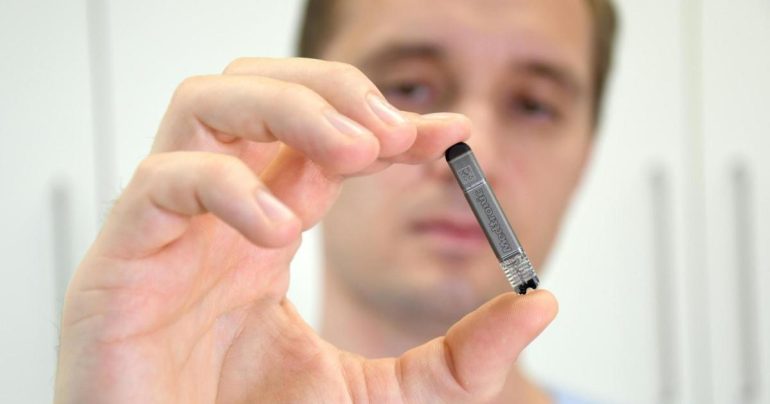There’s good scientific news for heart attack survivors: A tiny, implantable monitor placed under the skin of patients who have had a heart attack detects early signs of dangerous complications, the Medical University of Innsbruck reported on Wednesday. Did. One study showed that transplantation is clearly superior to conventional care, it said.
The study was led by Axel Bauer, director of the Internal Medicine III University Clinic at Med Uni Innsbruck at 33 heart centers in Germany and Austria. The journal Lancet Digital Health published the research.
The telemedicine procedure clearly has significant benefits: According to the researchers, the implantable device — a small heart monitor — detected serious, mostly asymptomatic rhythm events in 60 of 201 patients within 21 months. On the other hand, only twelve such events could be detected in the control group, which included 199 heart attack patients without telemonitoring within the scope of usual follow-up care over the same period. “The key message is that the monitor very sensitively detects alarming but asymptomatic rhythm events, which in turn are precursors to serious clinical events. Thus serious problems can be detected much earlier and in the future. high-risk patients can be better treated,” explained Bauer.
According to the expert, the monitor is of particular importance for the large group of people affected by the average pumping capacity, for which there are currently no specific preventive measures. A heart monitor is “as small as a nail”. It is a passive device that continuously records electrical information from the heart for many years. Dangerous arrhythmias will be automatically identified and telemetrically transmitted to a center.
Research work is not enough: future studies should now clarify the extent to which this telemedicine strategy can improve the prognosis of those affected.

Web guru. Amateur thinker. Unapologetic problem solver. Zombie expert. Hipster-friendly travel geek. Social mediaholic.





